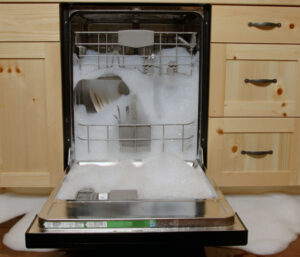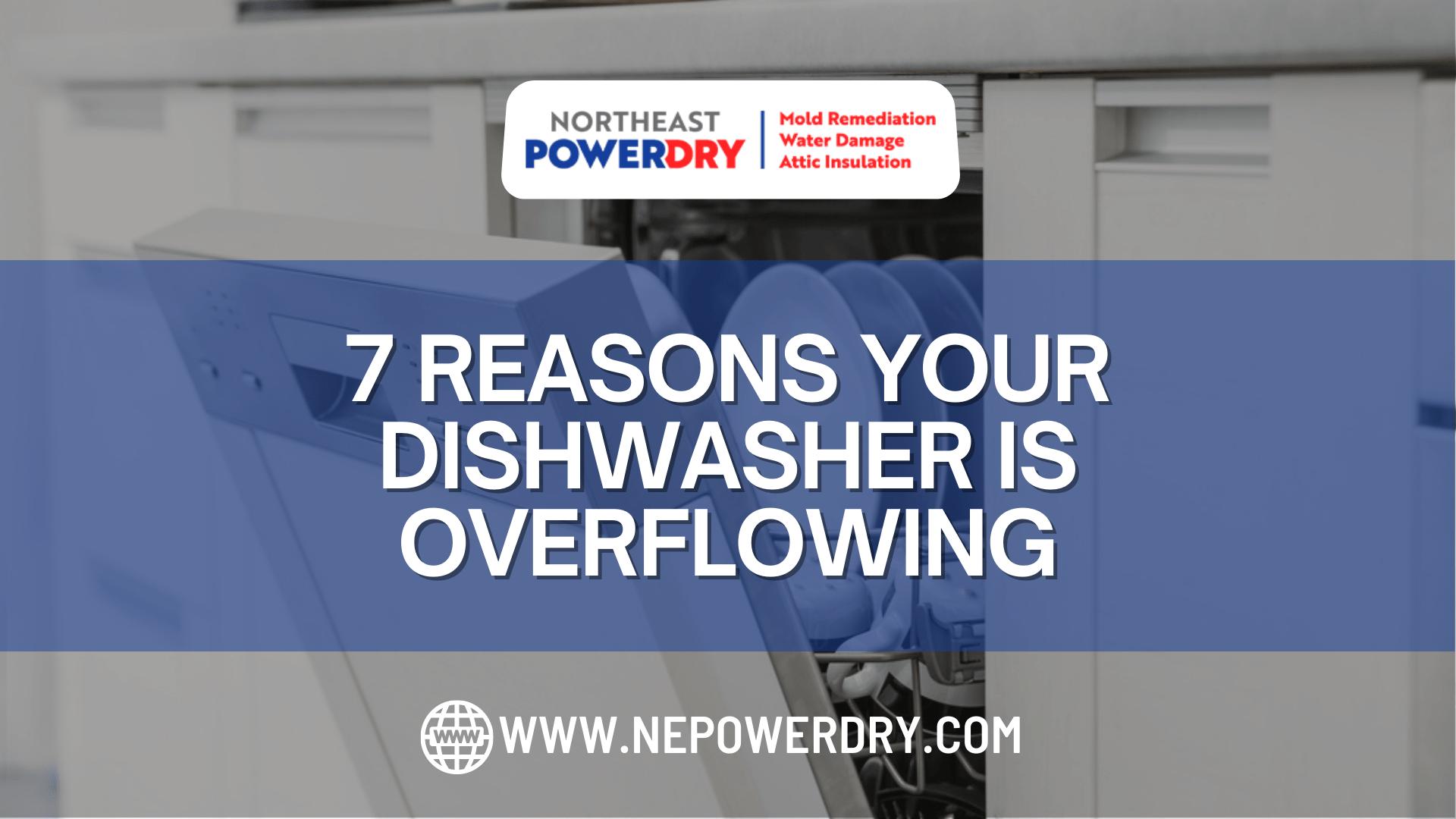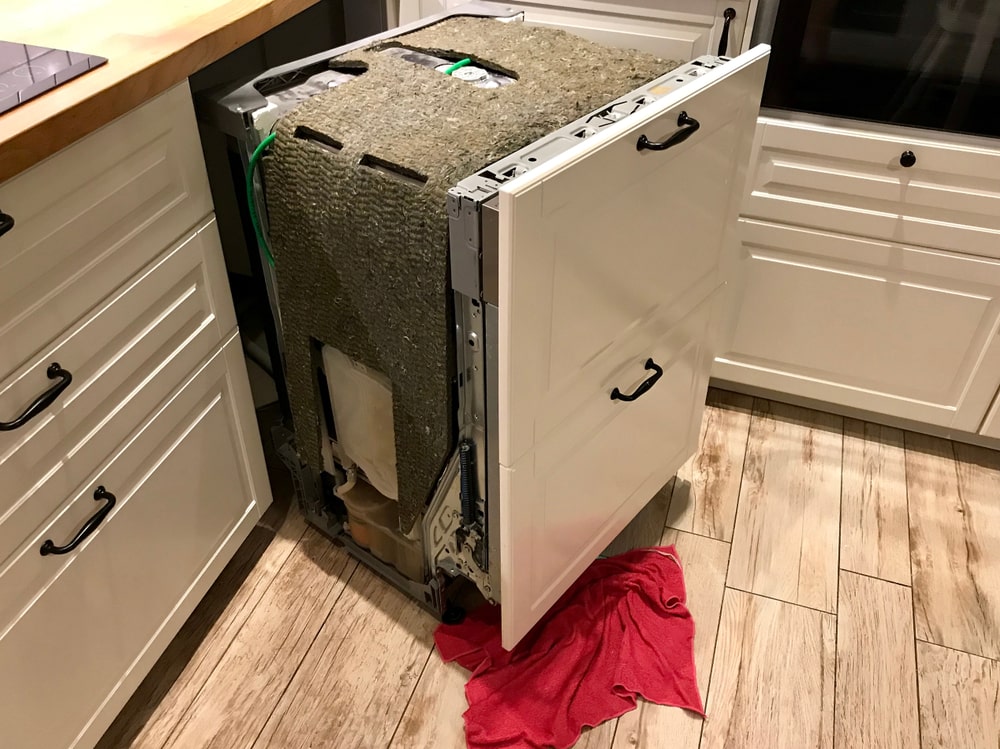You’ve got your dishwasher nice and loaded; started it, and you’re ready to turn it in for the night. But wait, is that water coming out of the unit? Looks like you’ve got an overflowing dishwasher.
There are loads of reasons why the dishwasher can overflow and they can all lead to water damage on the floors, nearby cabinetry, and walls. Let’s explore the ways a dishwasher can overflow and what steps you should take if there’s water damage.
Why Is My Dishwasher Overflowing?
1. Worn Out Dishwasher Door Gasket
The dishwasher gasket is a rubber seal around the door that keeps water and soap from escaping. When it’s damaged or worn out, it allows dishwater to seep out and onto your floors or cabinets. Replace the damaged or worn-out gasket.
2. Too Many Soapsuds

The more soap you use, the more clean your dishes will be, right? Well, maybe at the expense of an overflowing dishwasher. Too much dishwasher detergent or dish soap can create a massive buildup of soapsuds. Stick to the recommended amount to avoid this.
3. A Broken Water Inlet Valve
A broken inlet valve won’t properly fill your dishwasher, sometimes resulting in an overflow. One of the other ways you can tell you have a broken water inlet valve is water pooling in your dishwasher despite not having used it. Call an appliance repair specialist to take care of this before it leads to water damage.
4. Leaky Dishwasher Tub
Load after a load of detergent and minerals from tap water can eventually cause a hole to form in the dishwasher tub. Although you can fix the problem, you may want to consider replacing the unit entirely. If the problem is severe enough, it’s probably better to replace your dishwasher to avoid other costs and issues due to water damage.
5. A Defective Float Assembly or Switch
A defective or stuck float switch won’t signal to your dishwasher to shut off water flow. This can easily lead to the dishwasher overflowing with water and more water flowing in freely. You’ll need to replace or fix the defective float switch to avoid an overflow.
6. Clogged Dishwasher
Do you notice standing water in your dishwasher after it’s finished? Then it likely has a clog. Check the drain at the back of the unit for clogged debris and the drain hose for kinks.
7. Improper Alignment
Sometimes, installation mistakes can lead to dishwasher overflows. A misaligned dishwasher has a greater chance of water gathering underneath it. To check if your unit is properly aligned, place a level on it. If it’s not level, place shims underneath and recheck until it is.
Whenever Your Dishwasher Overflows, Call A Water Damage Restoration Company
No matter what reason causes your dishwasher to overflow—you’ll need to act quickly to minimize the water damage. Call Northeast Power Dry for dishwasher overflow restoration right away. Our team will head to your property fully equipped with water extraction and cleanup equipment. Upon arrival, our technicians will begin assessing the damaged areas like walls, carpeting, cabinets, and more. Then they’ll begin the cleanup and restoration processes. Contact us today for an inspection.
Comments are closed.



Recent Comments